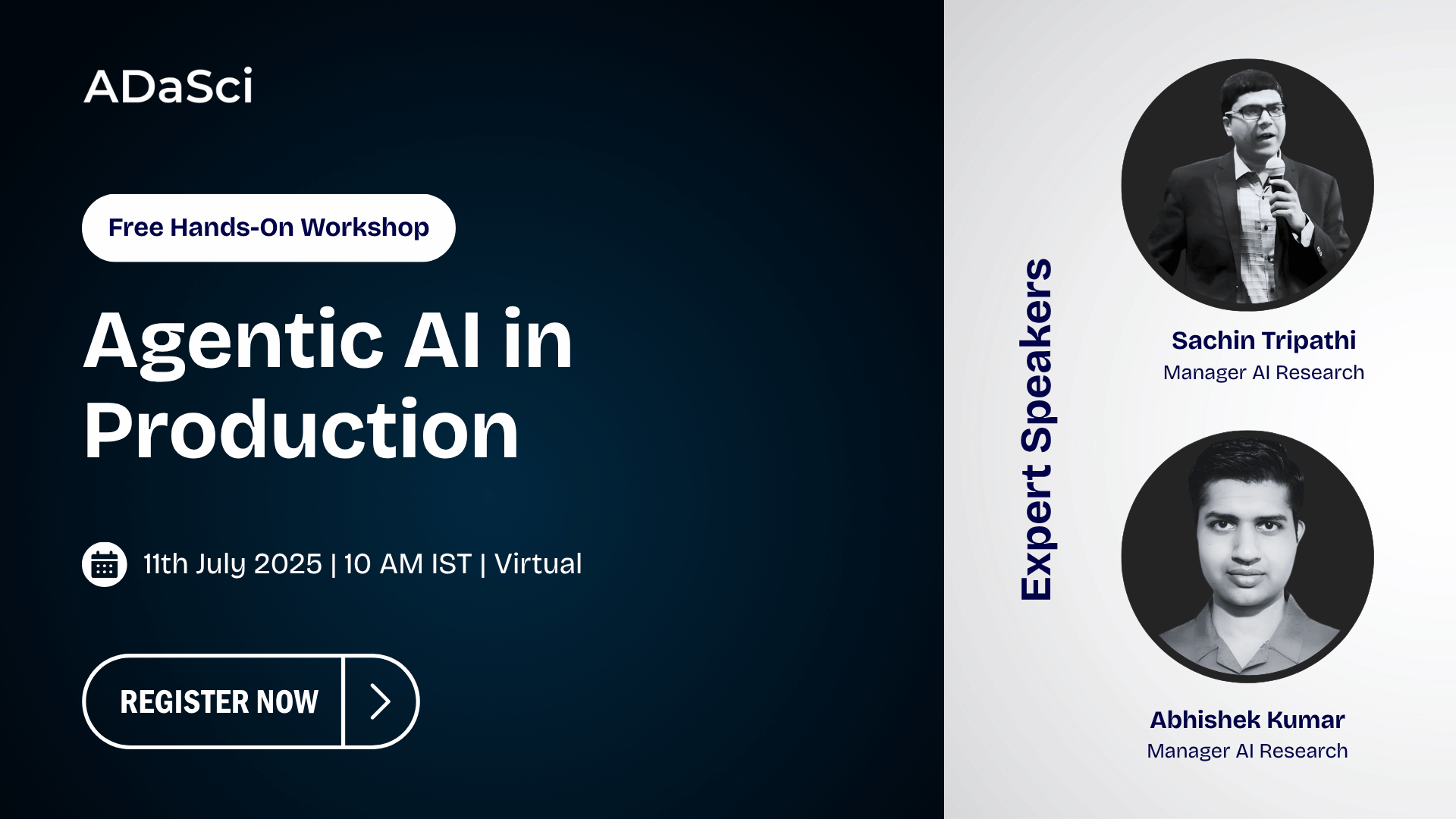The Generative AI Talent Gap: How Businesses Can Cultivate Their Own Experts

Explore more from ADaSci
Generative AI, revolutionizing industries with its autonomous content creation capabilities, spans diverse applications from artwork generation to personalized recommendations. Yet, within this realm of promise, a pressing challenge looms: the scarcity of qualified experts. This shortage threatens to impede progress and innovation, hindering businesses from fully leveraging the potential of generative AI. Addressing this talent gap is paramount for organizations seeking to capitalize on the transformative power of AI. By cultivating a skilled workforce through strategic initiatives and partnerships, businesses can unlock new opportunities and drive sustainable growth in the era of generative AI.
High Talent Demand, Low Supply
The demand for AI talent, particularly in the specialized domain of generative AI, far outweighs the available supply. According to a recent survey conducted by Deloitte, a staggering 67% of organizations struggle to find qualified AI talent. This shortage is exacerbated in the realm of generative AI, where the expertise required is highly specialized and in-demand.
As businesses increasingly prioritize AI-driven innovation, the competition for skilled professionals intensifies. Without a sufficient talent pool, companies risk falling behind in the race to harness the full potential of generative AI. Addressing this shortage requires strategic investments in talent development and a proactive approach to upskilling the workforce to meet the evolving demands of the digital age.
Skills Gap Widens
Recent research underscores the widening gap between demand and supply in the AI talent landscape. Despite 75% of companies prioritizing the acquisition of AI talent, only one in ten workers possess the requisite skills. This glaring discrepancy emphasizes the urgent necessity for strategic interventions to bridge the skills gap, especially in emerging domains like generative AI. As businesses increasingly rely on AI-driven solutions for innovation and efficiency, the shortage of skilled professionals poses a significant obstacle. Proactive measures are essential to address this gap, including targeted training programs, collaboration with educational institutions, and initiatives to promote diversity and inclusion in the AI workforce.
Future-Proofing Needed
McKinsey emphasizes the pivotal role of skilled talent in driving AI innovation, citing the lack of expertise as a major constraint. Without a concerted effort to cultivate a pipeline of generative AI experts, businesses risk falling behind in the race for AI-driven innovation. Therefore, it is imperative for enterprises to proactively address the talent gap through targeted initiatives. As technologies continue to evolve, future-proofing strategies become essential to ensure long-term competitiveness and relevance in an increasingly AI-driven landscape.
Upskilling and Reskilling the Workforce is Key
To mitigate the generative AI talent shortage, businesses must adopt a proactive approach to talent development. Rather than relying solely on external recruitment, cultivating internal expertise through upskilling and reskilling initiatives presents a sustainable solution. By investing in the continuous development of their workforce, companies not only address immediate talent shortages but also foster a culture of innovation and adaptability. Through structured training programs and opportunities for professional growth, employees can acquire the skills needed to thrive in the rapidly evolving field of generative AI, ensuring the organization remains competitive in the digital age.
Identify Talent
The first step in building an internal talent pipeline is identifying individuals within the organization who exhibit the potential to excel in generative AI roles. This involves assessing employees for attributes such as strong analytical skills, a penchant for technology, and a passion for learning. By recognizing and nurturing existing talent, businesses can harness the untapped potential within their workforce and cultivate a pool of skilled professionals poised to drive innovation in the field of generative AI.
Develop Training Programs
Once potential talent has been identified, businesses should design targeted training programs tailored to the specific requirements of generative AI. These programs should cover foundational concepts such as machine learning algorithms, generative model architectures, and ethical considerations in AI development.
By providing comprehensive training that encompasses both theoretical knowledge and practical skills, organizations can equip their employees with the expertise needed to succeed in the dynamic field of generative AI. Additionally, incorporating hands-on projects and real-world case studies into training curricula can facilitate experiential learning and ensure that participants are well-prepared to tackle complex challenges in AI development.
Invest in Certifications
Encouraging employees to pursue industry-recognized certifications in generative AI not only enhances their skill set but also provides validation of their expertise. Certifications serve as a tangible demonstration of commitment to professional development and proficiency in the field. By investing in certifications, businesses not only equip their workforce with up-to-date knowledge and skills but also signal to clients, partners, and stakeholders their dedication to excellence in AI-driven innovation. Additionally, certifications can open doors to new opportunities for career advancement and recognition within the industry, further motivating employees to continue their professional growth journey in generative AI.
Foster Collaboration
Creating a collaborative learning environment is essential for nurturing generative AI expertise within the organization. Establishing mentorship programs, organizing internal knowledge-sharing sessions, and fostering cross-functional collaboration enable employees to leverage collective expertise and accelerate their learning journey.
By facilitating interactions between individuals with diverse backgrounds and skill sets, businesses can foster a culture of innovation and knowledge exchange, driving continuous improvement and excellence in generative AI development. Moreover, collaboration fosters a sense of community and belonging among employees, increasing engagement and retention while promoting a collaborative mindset that is essential for success in the rapidly evolving field of AI.
Partnership for Upskilling
In addition to internal training initiatives, businesses should consider partnering with renowned upskilling service providers to augment their talent development efforts. Partnering with global leaders in professional development such as ADaSci can provide access to cutting-edge training programs and resources tailored to the specific needs of generative AI.
Promote Diversity
Promoting diversity and inclusion within the generative AI workforce is crucial for driving innovation and ensuring the development of AI solutions that are ethical and equitable. Actively encouraging individuals from underrepresented backgrounds to pursue careers in AI fosters diversity of thought and enriches the talent pool. By embracing diversity, businesses gain access to a wider range of perspectives, experiences, and ideas, which can lead to more creative and effective solutions.
Moreover, a diverse workforce is better equipped to understand and address the diverse needs of users and stakeholders, resulting in AI solutions that are more inclusive and impactful. Therefore, promoting diversity and inclusion should be a priority for businesses seeking to harness the full potential of generative AI and drive positive social and economic outcomes.
Final Words
The generative AI revolution presents unprecedented opportunities for businesses to innovate and differentiate themselves in an increasingly competitive landscape. However, realizing the full potential of this transformative technology hinges on addressing the talent gap. By prioritizing upskilling and reskilling initiatives, fostering collaboration, and nurturing diverse talent, enterprises can cultivate their own generative AI experts and unlock the true value of AI-driven innovation.






